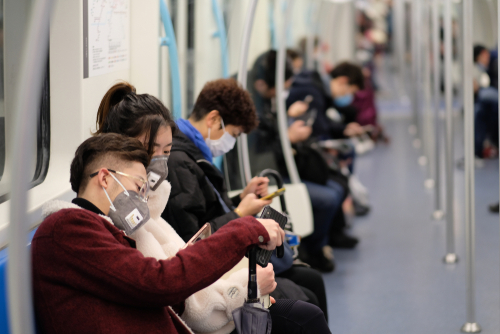
Confirmed infections of the Wuhan coronavirus reached five people in the United States over the weekend, with already known cases in Washington state and Chicago being joined by new patients in California and Arizona.
In all cases, the patients recently returned to the United States from Wuhan, China, where the respiratory illness first began. Known alternatively as 2019-nCoV, the virus has continued to escalate worldwide since last week, with the official death toll now at 81 and nearly 3,000 confirmed cases of infection. Experts have repeatedly warned, however, that the actual infection figures are likely significantly higher.
The latest U.S. cases were confirmed by the Centers for Disease Control and Prevention (CDC) after clinical specimens were dispatched for lab testing. CDC officials said on Monday that 110 people from 26 states are being monitored for possible coronavirus, but that the immediate health risk to the general public is low at this time. Investigations are still underway to determine where patients went after returning to the United States and to trace any contacts that may have been exposed to them.
“It is likely there will be more cases reported in the U.S. in the coming days and weeks, likely including person-to-person spread,” the CDC said in a Jan. 26 statement. “In previous outbreaks with MERS and SARS, the two other coronaviruses that have jumped the species barrier to cause severe illness in people, person-to-person spread has been seen, including among healthcare workers caring for patients ill with coronavirus infection. This underscores the importance of appropriate precautions in the health care setting as well in homes of people who are infected with 2019-nCoV but who may not be hospitalized. CDC has developed guidance for both situations.”
Unlike MERS and SARS, however, which are only contagious after symptom onset, Chinese scientists recently confirmed those with the Wuhan coronavirus are infectious even before they display any symptoms. This makes it significantly more difficult to contain, like the flu.
Following a briefing from health officials on Friday, leaders of the U.S. Senate Health, Education, Labor and Pensions Committee and the U.S. Senate Foreign Relations Committee issued a statement on the rapidly evolving situation.
“We are monitoring the outbreak of a novel coronavirus closely and are in close communication with United States government agencies on actions and precautions needed to prevent further spread of this virus,” said the senators. “The safety of U.S. citizens here domestically, as well as in China and other affected countries, is our first priority. The Chinese government has taken steps to share information with international health experts, and we encourage their cooperation and transparency as this situation unfolds.”
Other lawmakers, like U.S. Rep. Tom Cole (R-OK), ranking member of the U.S. House Appropriations Subcommittee on Labor, Health and Human Services, Education, and Related Agencies, also addressed the latest updates.
“While the risk of a U.S. outbreak of this coronavirus appears to be very low, I have great confidence in CDC’s ability to effectively monitor the situation, advise health providers and keep us all educated and informed,” Cole said. “And thanks to the Infectious Disease Rapid Response Reserve Fund, I am relieved that CDC has access to immediate funding to support emergency response efforts.”
As of this week, the World Health Organization (WHO) noted 44 confirmed cases of 2019-nCoV outside of China. Since the initial outbreak, it has spread to Thailand, the United States, Australia, Singapore, Taiwan, Malaysia, South Korea, France, Japan, Vietnam, Nepal, Canada and Cambodia.
While the CDC states the immediate risk to the general public in the U.S. is low at this time, precautions are being taken to keep the situation from exacerbating. Those steps include health screenings at airports and the recommendation that everyone avoid nonessential travel to China’s Hubei province.




